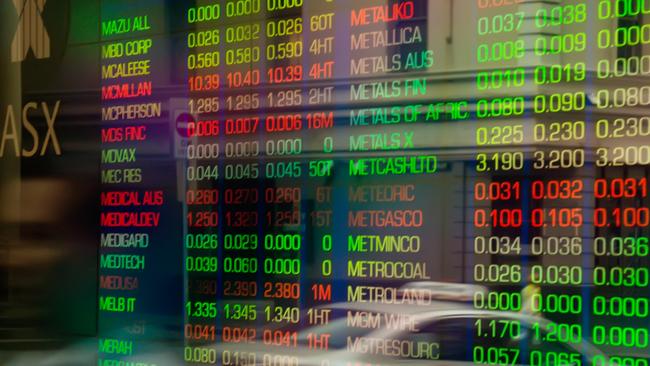Robinhood making merry on the market

Robinhood is a share trading platform catering to the unprecedented number of retail (you and me) investors who have entered the sharemarket since March. More millennial and Gen Z traders have turned to the market — Sharewood Forest, if you will — driven by an increase in working from home and a loss of other forms of entertainment due to lockdowns.
Large fund managers and boomer generation brokers have derided us as naive and reckless. While this is partly true (just browse one of the many social media groups for ASX stock tips), for every “rocket chaser” there is a sensible young investor who builds a strategy through either researching company fundamentals (evaluating company reports, director buying, future growth themes), analysing price charts (reading candles, trading gaps, watching volumes and finding support-resistance levels) or a combination of both.
Many larger institutions have lamented sitting on the sidelines as Robinhood traders reap returns as the market rapidly recovers more than 30 per cent from the March lows.
I am a strong believer that the best way to learn is to throw oneself in the deep end. As one of these merry men (and women) who have recently cut their teeth in the market, I thought I would share my 10 golden rules of trading having now experienced the euphoric highs and anxiety-inducing corrections over the past few months.
Have a plan
Having a plan stops you making emotional decisions during the drama of the day, succumbing to FOMO (fear of missing out) and then panic buying and selling.
Fear on the downside and greed on the upside will cloud decision-making. It’s far better to sell for less of a profit than be caught without a chair when the music stops.
Similarly, it is far better to lose 10 per cent on a trade than 20 per cent because you believe “it will come back”. Remember, you can make that return up elsewhere.
Setting what is known as a “stop loss” can help you exit a trade when the algorithms begin to sell faster than it takes for you to dash to the bathroom.
Understand your ‘circle of competence’
This could be an industry you understand, or a company whose products and services you consume. I don’t know how to read drilling results, so I steer clear of speculative miners. But I work in the energy industry so I am able to invest with confidence in what I see the future direction of energy to be (electric vehicles, renewables and hydrogen).
Find some ‘equity mates’
Your equity mates are those you can discuss your trading plan with and get tips and ideas from. Social media groups, podcasts and YouTube can be a great way to do discover new trading ideas.
Don’t think that you need a top-end-of-town broker
Not even the big boys can agree on valuations. Afterpay has been valued as high as $106 by Morgan Stanley, and as low as $27 by UBS.
Never buy a company with shares worth less than 2c
I like to call these “lobster traps” because they are easy to get into but hard to get out of. Often these companies have very low liquidity and are highly susceptible to “pump and dumps”.
If you are going to chase that elusive “ten-bagger”, never invest more than you are prepared to lose (usually, you’ll lose).
Don’t form an emotional attachment to stocks
This tends to occur the longer we hold. No need to be patient with them when they are driving you crazy. Investing is more akin to gardening. Water the flowers in your portfolio that are performing and weed out the ones that aren’t.
Hold no grudges
Don’t hold a grudge against a stock because it has supposedly “been a dog” to you in the past; it’s more likely you are the one at fault for buying it. It’s OK to get back together with a stock that has treated you badly in the past if there is profit to be made.
Sell a stock once your Uber driver is telling you about it
Usually by this time the smart money has left the building and more often than not you will be left holding the bag. Recent trending stocks like these have included travel stocks, “buy now pay later” and artificial intelligence.
You can guess how these fads ended yourself but if you don’t believe me just check the chart. Buy high, sell low … not!
Where the US leads, Australia will follow
OK, so maybe this doesn’t apply to our approach to foreign affairs, but it sure applies to the markets. If there is a bloodbath on Wall Street, expect a red shower on the ASX. Don’t try to rationalise the market.
With unemployment at record levels and most of the world in recession and/or depression, the US stockmarket is at all-time highs. In times of such high volatility it is impossible to predict the future.
Remember, the market can remain irrational longer than you can remain solvent.
Never regret a profit even if is just for beer money
As always, this is not financial advice and as they say, DYOR (Do your own research).
Will Bennett is an energy industry consultant and recent day trader.







You may have heard of the recent “Robinhood” phenomena. To those unfamiliar, fear not, there has not been an outbreak of egalitarian bandits attempting to redistribute societal wealth during the pandemic.